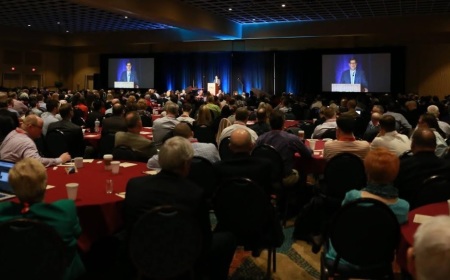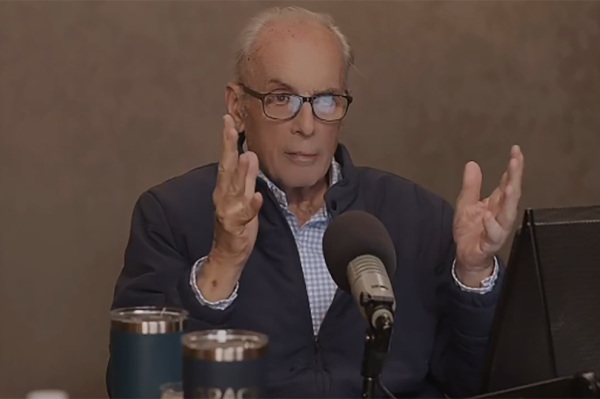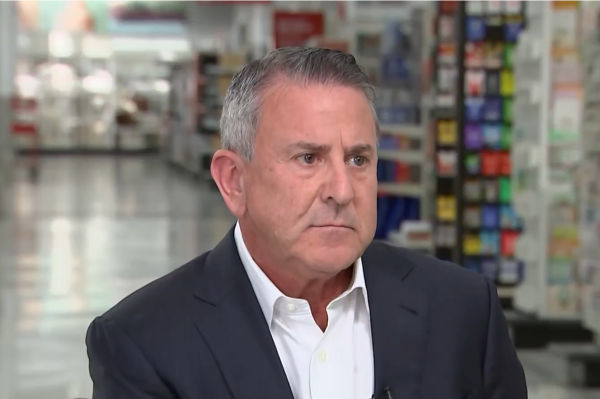1,000 educators to discuss struggles, trends facing private Christian schools

Over 1,000 teachers and leaders from private Christian schools worldwide are gathering in Texas this week to collaborate and identify innovative ways to address the challenges and opportunities facing their institutions in an increasingly secular world.
Looking to reshape the movement and continue offering distinctive Gospel-centered education, the second-ever Global Christian School Leadership Summit begins Wednesday at the Grand Hyatt San Antonio.
The three-day gathering is sponsored by eight Christian school associations, which represent over 25,000 Christian schools in 100 countries and serve more than 6 million students. With over 700 attending the first-ever GCSLS in 2017, the biennial event is becoming known as one of the premier networking conferences for Christian-based secondary and primary educators.
“This year’s summit we are focusing on innovation,” said GCSLS Chair Lynn Swaner, who is also the chief strategy and innovation officer at the Colorado-based evangelical accrediting agency Association of Christian Schools International.
“Our hope is that participants will take away a fresh hope and bright ideas for how to innovate in their settings and also connect with colleagues who are innovating from around the world.”
In an interview with The Christian Post, Swaner said the goal is to position Christian schools to “develop the best answers in all of education” in order to address the changes that have emerged in the education field over the last several decades and also figure out ways to incorporate the latest technology in truly meaningful and efficient ways in the classroom.
“As believers, what we have to offer should be the most innovative and the best of what is out there,” Swaner told CP. “If you think about Daniel in Babylon or Joseph in Egypt, those are men of faith. They knew and obeyed God but they were also highly competent Spirit-led leaders who impacted their society for the good of all. As they were doing that, God’s name was glorified.”
One area of focus for the summit will be technology and how Christian schools can equip and use various forms of technology appropriately. One presenter during a technology work session will be Mitch Salerno, the headmaster of Monte Vista Christian School in Watsonville, California.
According to Swaner, his school was the first in the nation to be an iPad demonstration school.
“One of the trends that I am seeing is that schools everywhere have been fairly quick to try to invest in technology and have that available to their students or they want to have a one-to-one policy,” Swaner explained. “They want to enable students to have the technology in their hands. Now that technology is ubiquitous, I think we are able to really ask some of the deeper questions about how we are able to not just physically have technology in the classroom but how do we use it in authentic ways to deepen and improve students' learning and to make teaching more effective.”
Many Christian schools are asking questions about what kind of policies they should be putting in place and how they can help teachers best navigate the use of technology in the classroom, according to Swaner.
The summit will also feature a panel on hybrid and online learning.
“Many of our Christian schools are beginning to offer classes or entire programs online,” Swaner said. “That will be a panel that will be talking about best practice in that area.”
Another trend occurring in Christian schools, Swaner explained, is the desire to make their institutions more culturally diverse.
Walter Strickland, a professor at Southeastern Baptist Theological Seminary, will present on how to move beyond secular solutions and apply a biblical worldview so schools can become agents of reconciliation.
The summit will also feature a discussion touching on how schools can grow their diversity programs. Swaner said she is seeing more Christian schools launching special programs or hiring specialists to help foster greater cultural diversity.
“That is really a trend in Christian schools that I have seen over the past few years, just the development of specific programs or hiring of specific staff to actually create a community that welcomes diversity, that welcomes the tough conversations that come around living in community,” Swaner detailed. “That is definitely a trend and we will have quite a few of those folks at the summit.”
Helping Christian schools serve those in their communities that have special learning needs, whether they are academic, mental or emotional, is another issue that will be addressed.
According to Swaner, a family with three kids is likely to have at least one child with some sort of special need. The need for “inclusive education” is seen throughout the education field in both the public and private school setting.
“We are seeing more students with learning needs who are coming to our schools,” she said. “That is not a trend that is unique to Christian schools but that certainly something that our schools are recognizing that they want to be able to serve their communities well.”
As with other private and even public schools, many Christian schools are facing budgetary and financing issues. Swaner stressed that these issues might stem from things like demographic changes or resurges and declines in elementary school children in certain parts of the country.
“Schools everywhere are learning on the fly how to become leaner, more focused, more efficient and at the same time having to invest in things like new technology and good salaries. I think that is the challenge that schools everywhere are really struggling with.”
The GSCLS is sponsored by the Association of Christian Schools International, Association of Christian Teachers and Schools, the Council on Education Standards & Accountability, Christian Schools Australia, National Christian School Association, Christian Schools International, International Christian Accrediting Association and the Southern Baptist Association of Christian Schools.
The summit will also feature a presentation from Beth Green, a senior fellow at the Canadian think tank Cardus. Cardus puts out an education survey about every two years that focuses on the impact that Christian school graduates have made on their communities in both the U.S. and Canada. Green will share some initial insights from the unreleased 2018 survey.
“Previous generations of the Cardus Education Survey have demonstrated clearly that in comparison with their counterparts in publicly-funded schools, Christian school graduates have things like stronger families and are more involved with their communities,” Swaner recalled.
Follow Samuel Smith on Twitter: @IamSamSmith
or Facebook: SamuelSmithCP






















